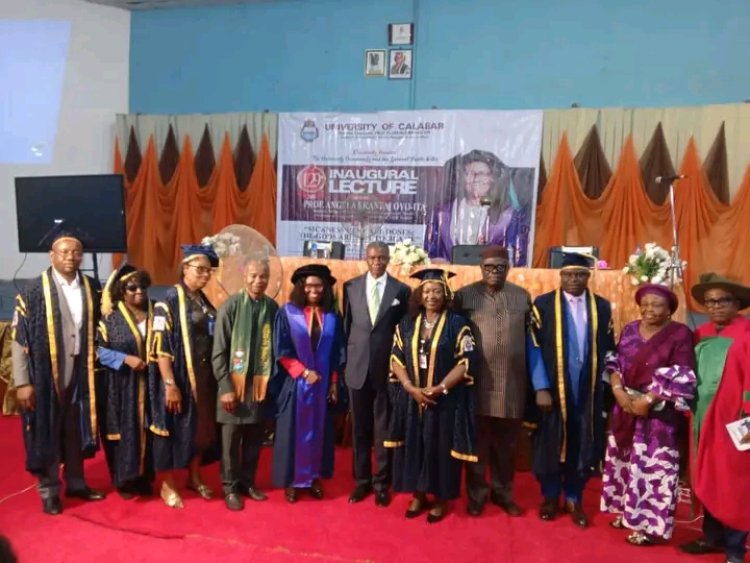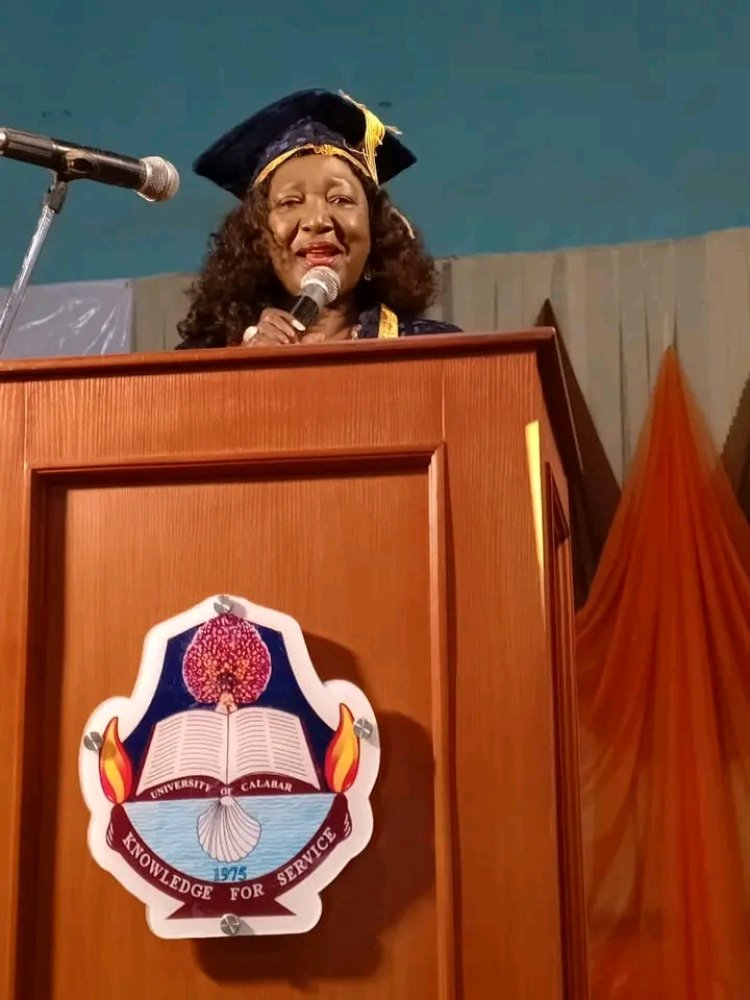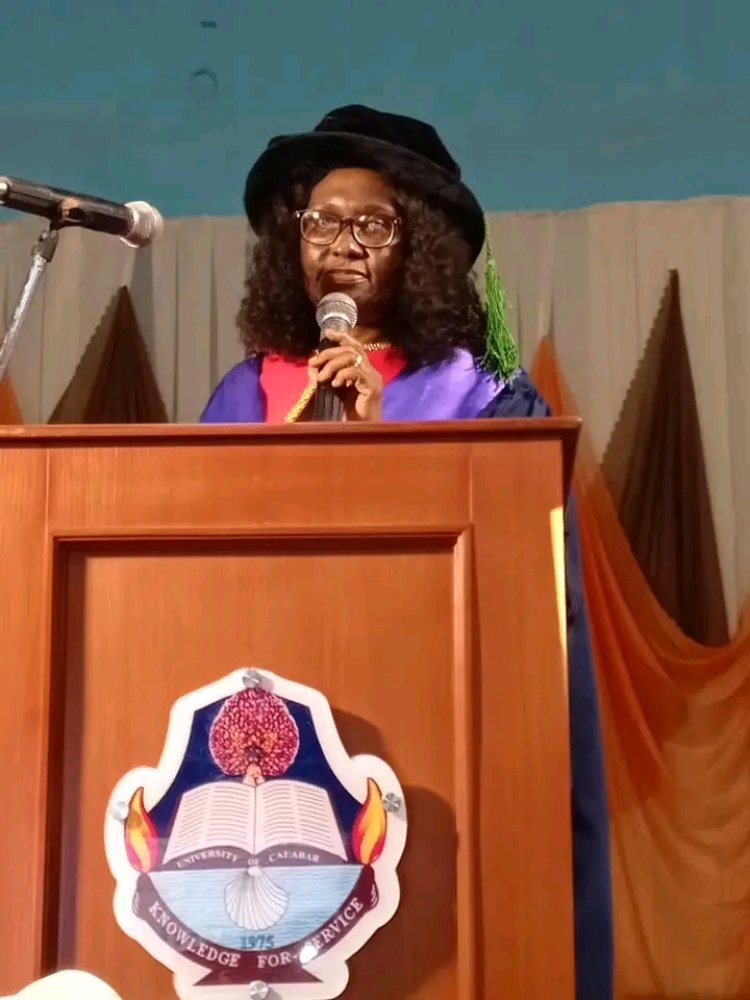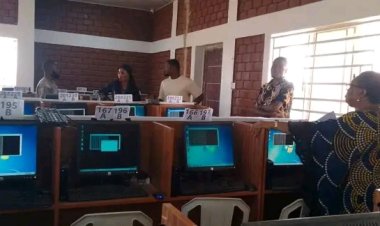Children Are Most Vulnerable to Infectious Diseases – UNICAL Inaugural Lecturer
The 129th inaugural lecturer at the University of Calabar (UNICAL), Prof. Angela Oyo-Ita, has highlighted that children are the most vulnerable to infectious diseases due to their underdeveloped immune systems.

The 129th inaugural lecturer at the University of Calabar (UNICAL), Prof. Angela Oyo-Ita, has highlighted that children are the most vulnerable to infectious diseases due to their underdeveloped immune systems.
Delivering the lecture titled "Sickness in Small Doses: The Gods Are Not to Blame" at the UNICAL International Conference Centre, Prof. Oyo-Ita shed light on the alarming rates of vaccine-preventable diseases among children in Africa.

According to Prof. Oyo-Ita, approximately 30 million children under the age of 5 years in Africa contract vaccine-preventable diseases, resulting in around 500,000 deaths annually. This represents 58 percent of global deaths from such diseases. As a Professor of Community Health (Maternal and Child Health) and the current Deputy Vice-Chancellor of Academics at UNICAL, she pointed out that Africa bears the heaviest burden of these diseases due to a significant number of children not receiving all the essential vaccines.
The lecture also focused on the slow pace of childhood vaccine uptake in Africa, which hinders optimal immune responses. Prof. Oyo-Ita emphasized the importance of effective communication in improving vaccination rates and urged health facilities to take every opportunity to vaccinate eligible individuals, especially children. “Failure to vaccinate a child with mild illness is a missed opportunity,” she said, highlighting several missed chances for vaccination in health facilities.

She further emphasized the importance of exposing children to "small doses" of infectious agents to prime their immune systems and reduce the mortality and morbidity rates associated with preventable diseases. Prof. Oyo-Ita noted that infectious diseases, whether endemic, epidemic, or pandemic, are indiscriminate and can rapidly spread across borders due to improved global transportation systems, placing public health in a state of crisis.
The inaugural lecturer stressed that the emergence and re-emergence of diseases are often a result of human activities and the response to these outbreaks determines the extent of their impact. She called for collective efforts in addressing the challenges posed by infectious diseases and stated, “We cannot continue to blame gods for indeed; the gods are not to be blamed.”
UNICAL Vice Chancellor, Prof. Florence Obi, praised Prof. Oyo-Ita for her insightful and relevant lecture, commending her as a knowledgeable academic who has made significant contributions to the medical field. Prof. Obi further described the inaugural lecturer as one of the "pillars" of the current administration at UNICAL and encouraged emerging medical practitioners and academics to look up to her as a role model.

The event culminated with the presentation of a memento to Prof. Oyo-Ita by the Vice Chancellor, honoring her for her outstanding academic achievements and contributions to the growth of the university and society at large.





